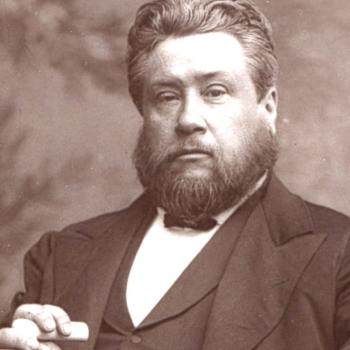Have just been reading Dabney on the atonement online. People wonder why many of us prefer theology by a bunch of dead guys to some of the modern stuff.
Dabney catelogues many scriptural proofs of penal substitution and highlights Galatians 3:10-14 as one of the foremost texts: “For all who rely on works of the law are under a curse; for it is written, ‘Cursed be everyone who does not abide by all things written in the Book of the Law, and do them.’ Now it is evident that no one is justified before God by the law, for ‘The righteous shall live by faith.’But the law is not of faith, rather ‘The one who does them shall live by them.’ Christ redeemed us from the curse of the law by becoming a curse for us–for it is written, ‘Cursed is everyone who is hanged on a tree’– so that in Christ Jesus the blessing of Abraham might come to the Gentiles, so that we might receive the promised Spirit through faith.”
Dabney also points out that those who deny penal substitution almost by necessity end up denying
1. The retributive eternal justice of God and his anger against sin and even the demons. For if God is not bound to punish sin by his justice then how can he punish it in anyone.
2. God’s providence in caring for his son, for if salvation was not soley possible through him experiencing the punishement and rejection of God then the answer to the question “Why have you forsaken me?” simply doesnt make sense.
3. Eternal punishment of the unbeliever. For if God is not a God of retributive justice how can he punish sinners forever in hell?
4. The doctrine of original sin, for if we cannot believe that God imputed our sin to Christ, how much more absurd is the notion that Adams sin is held to the account of all mankind? Without such a concept it is impossible to explain why infants who have never sinned suffer the aweful effects that sin has caused in this world- namely sickness pain and at times death.
5. The doctrine of Christs righteousness being imputed to us, how can he be our righteousness if he wasnt also made to be our sin? Thus, when we discuss our righteousness it can only be meant to include our own good acts. If penal substitution is a “legal fiction” then our share in Christs righteousness can only be a legal fiction as well.
Thus, without some notion of penal substitution the good news simply unravels- our sin has not been dealt with, and we cannot live in the good of what Christ has accomplished for us. How can I be confident that I will be saved if my salvation depends on my responding to the example Christ showed? Yes there is much more to the cross than penal substitution, and I wholeheartedly embrace the truth of many different models of the atonement, but without the penal element and without the notion of Christ being in my place I honestly cannot see what gospel is left.
Hebrews 9:23-7 expresses it very well
23 Thus it was necessary for the copies of the heavenly things to be purified with these rites, but the heavenly things themselves with better sacrifices than these. 24 For Christ has entered, not into holy places made with hands, which are copies of the true things, but into heaven itself, now to appear in the presence of God on our behalf. 25 Nor was it to offer himself repeatedly, as the high priest enters the holy places every year with blood not his own, 26 for then he would have had to suffer repeatedly since the foundation of the world. But as it is, he has appeared once for all at the end of the ages to put away sin by the sacrifice of himself. 27 And just as it is appointed for man to die once, and after that comes judgment, 28 so Christ, having been offered once to bear the sins of many, will appear a second time, not to deal with sin but to save those who are eagerly waiting for him.











